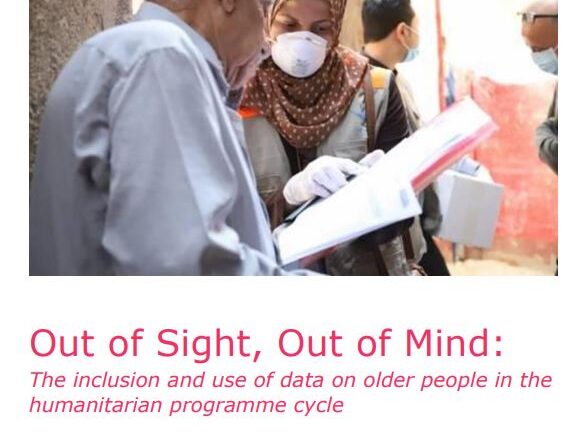Out of Sight, Out of Mind: The inclusion and use of data on older people in the humanitarian programme cycle
By HelpAge International
Humanitarian principles and basic human rights afford everyone the right to safe and dignified access to assistance and protection on an equal basis. Older people are among those most at risk in humanitarian crises, yet older people’s rights are frequently denied, and they receive little targeted attention from governments, donors, or humanitarian agencies. HelpAge International’s 2018 study, ‘If not now, when?’, highlights significant failings in how the humanitarian system includes older people when responding to crises. A 2019 report by HelpAge Asia, More at risk: How older people are excluded in humanitarian data, found that underlying this lack of attention is the absence of data and information about older people and the risks they face; in this study, HelpAge Asia found that only one in three aid agencies collected age-inclusive data in their emergency response, and only one in four needs assessment reports mentioned older people. In 2020 when the United Nations launched its global humanitarian response plan to fight Covid-19, the evidence was already clear that people in older age were among those most at risk of complications from COVID19 and experienced a higher than average mortality rate; despite this, older people were not specifically included in the list of “most affected and at-risk” population groups. This lack of visibility for older people and the lack of understanding of their basic human rights and needs has a direct impact on the support available to them when humanitarian crises take place. Data and information collected and analysed in humanitarian settings, including through Humanitarian Needs Overviews (HNOs), inform priorities for donors, UN, and individual agencies. It is presented and used throughout the Humanitarian Programme Cycle (HPC) and impacts upon funding decisions for Humanitarian Response Plans (HRPs). This process is the focus of our report.
Source: @Helpage
386 views










